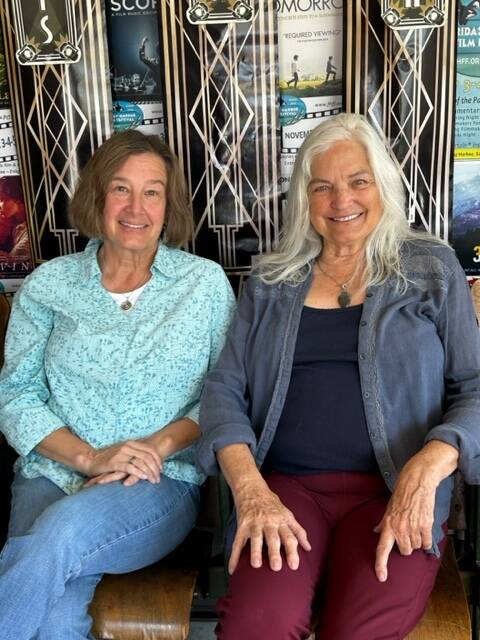The women behind the Friday Harbor Film Festival work tirelessly to pull off what is year after year a complex town wide event. Not only does it feature award-winning films in multiple venues, each showing is complete with question and answer sessions. There is also the opening Gala, closing award ceremony and a showcase event just for young filmmakers.
“The reason we started this was to effect change,” Director and cofounder Karen Palmer said. “We are a non-profit, we are not doing this for money, we are doing this for altruistic reasons.”
Providing a space for stories told by and about women is one of the ways the FHFF alters the way humans view the world.
Palmer explained that most of the film festivals around the country, including the Sundance Film Festival, are run by women, and have been attracted to documentaries and film in general. Women in the industry do have hurdles, however.
“Women have a challenge to get their foot in the door and get funding,” Student and Volunteer Development Director Susan Waters said. “It’s an amazing opportunity for female filmmakers to tell that different perspective and effect positive change.”
Palmer herself is retired from the film industry, and she agreed that funding and being able to get that initial recognition for women is a struggle. In fact, those same challenges persist in nearly all industries.
“Journalism was very difficult because men tended to discount what I said and expected you to do everything,” Publicity and Festival Coordinator Ellen Roberts said, adding that there has been movement to get women in higher positions. It is more common now to see not just women reporters but women editors and publishers.
“I’ve had many diverse professions,” Waters said. “Cattle ranching was of course male-dominated. Teaching was male-dominated in administration, the leaders. So it’s always been a matter of working twice as hard and not taking no for an answer, not giving up. Women in general have to work a little bit harder.”
Theresa Simendinger, Advertising and Marketing Director, worked as a stewardess in the 70s. When she was only 28 years old, her bosses told her despite being good at her job, they had to let her go because she was too old. She was lucky, they told her, because they had kept her an additional two years. “It is so much better than it used to be. It is no longer cool to be obnoxious to women. Women are now being taken seriously, but that is a recent thing.”
Event Coordinator Lee Taylor is a retired National Parks Superintendent. “I have never felt held back by being a woman,” Taylor said when asked what kinds of challenges she faced as a woman during her career. “I think the key is to develop your skills, show up with conviction, and use your voice. Being confident and assertive does not always come easily to women, so mentoring in those areas can be very helpful.”
While society has progressed, equal pay for equal jobs done, especially for women in management is something Simedinger would like to see.
Taylor says “I would like to see child care that is affordable, safe, and of high quality widely available. I would like society to be equally respectful of women who choose to work and women who choose to stay home with children. This includes how women treat each other.”
For Palmer, Waters and Roberts, it all came back around to listening to their stories and giving them a space for those stories to be told.
“It’s a catch-22. How do you get funding – by being recognized? How do you get recognized without funding?” Waters pointed out, adding that to break that cycle, “society should, in whatever capacity we have in society, create a forum, creating a space for other voices, not just women, but all voices not often heard.”
The festival has multiple categories for those perspectives; Tales from the Heart, Things to Consider and Explorer and Adventure.
“We get compliments on our approach. We try to find documentaries that have solutions,” Palmer explained.
“We may be exploring tough issues, but it isn’t doom and gloom. The audience walks out feeling inspired and may do something as a result,” Waters said.
All of this could not be done without volunteers, many of whom are men. Mark Kyle has done an amazing job with their graphics. Norris Palmer, Karen’s husband, has been in charge of In Theater Production, a role critical to the viewing experience.
“We really couldn’t do it without them,” Roberts said.
With the help of grants and donations, the team has expanded beyond a three-day festival. Not only is the festival online after the in-person event, but FHFF has collaborated with the library and the grange to show the films throughout the year to the public for free.
“We do what we do to enrich the community,” Waters said.
The festival kicks off Oct. 27. For more information visit www.fhff.org.



